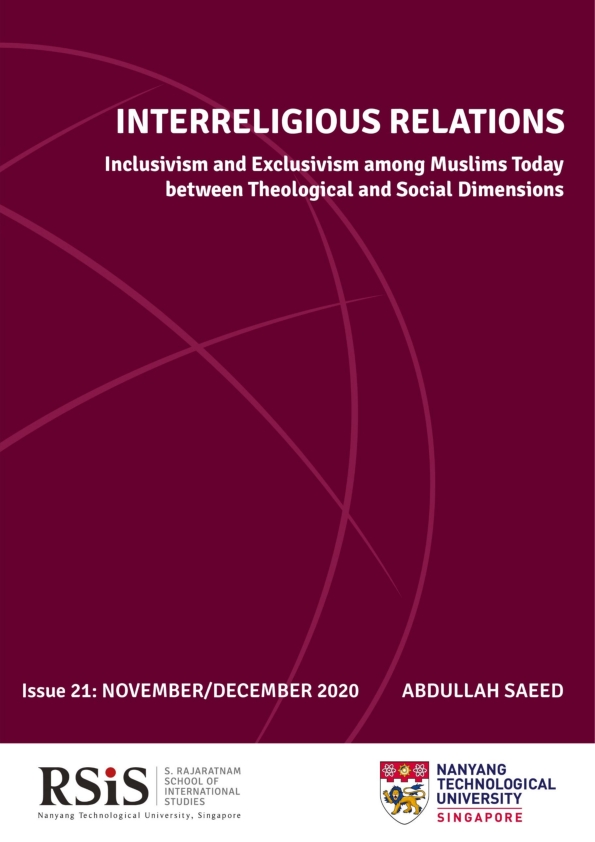30 November 2020
- RSIS
- Publication
- RSIS Publications
- Interreligious Relations (IRR) Issue 21 – Inclusivism and Exclusivism among Muslims Today between Theological and Social Dimensions by Abdullah Saeed
Abstract:
Inclusivist views about people of other religions or no religion (non-Muslims) are crucial for harmonious interreligious relations in societies that are becoming increasingly diverse. However, in the case of Islam, achieving this is fraught with challenges. Within the Islamic tradition, there are long-held theologically exclusivist views about other religions, such as salvation is only available through Islam and religions other than Islam are invalid. These positions can be referred to as theologically exclusivist and are often difficult to challenge due to their pervasiveness and because they are generally considered key Muslim beliefs. The paper highlights some attempts made by a number of contemporary Muslim thinkers to adopt theologically inclusivist views that challenge such theologically exclusivist positions. However, their views are still seen as too radical for mainstream Muslims and are thus often marginalised. This paper argues that the challenges that theological inclusivists face should not prevent us from adopting inclusivist views about people of other religions or no religion. The emphasis then is on addressing negative ideas about people of other religions that have developed in the Islamic tradition, such as the inequality of non-Muslims to Muslims, and developing positive ideas, such as the equality of all people. Here the focus is on social inclusivism which appears to be a more feasible project. Such a shift from theological inclusivism to social inclusivism is likely to lead to better relations between Muslims and non-Muslims.
Abstract:
Inclusivist views about people of other religions or no religion (non-Muslims) are crucial for harmonious interreligious relations in societies that are becoming increasingly diverse. However, in the case of Islam, achieving this is fraught with challenges. Within the Islamic tradition, there are long-held theologically exclusivist views about other religions, such as salvation is only available through Islam and religions other than Islam are invalid. These positions can be referred to as theologically exclusivist and are often difficult to challenge due to their pervasiveness and because they are generally considered key Muslim beliefs. The paper highlights some attempts made by a number of contemporary Muslim thinkers to adopt theologically inclusivist views that challenge such theologically exclusivist positions. However, their views are still seen as too radical for mainstream Muslims and are thus often marginalised. This paper argues that the challenges that theological inclusivists face should not prevent us from adopting inclusivist views about people of other religions or no religion. The emphasis then is on addressing negative ideas about people of other religions that have developed in the Islamic tradition, such as the inequality of non-Muslims to Muslims, and developing positive ideas, such as the equality of all people. Here the focus is on social inclusivism which appears to be a more feasible project. Such a shift from theological inclusivism to social inclusivism is likely to lead to better relations between Muslims and non-Muslims.





